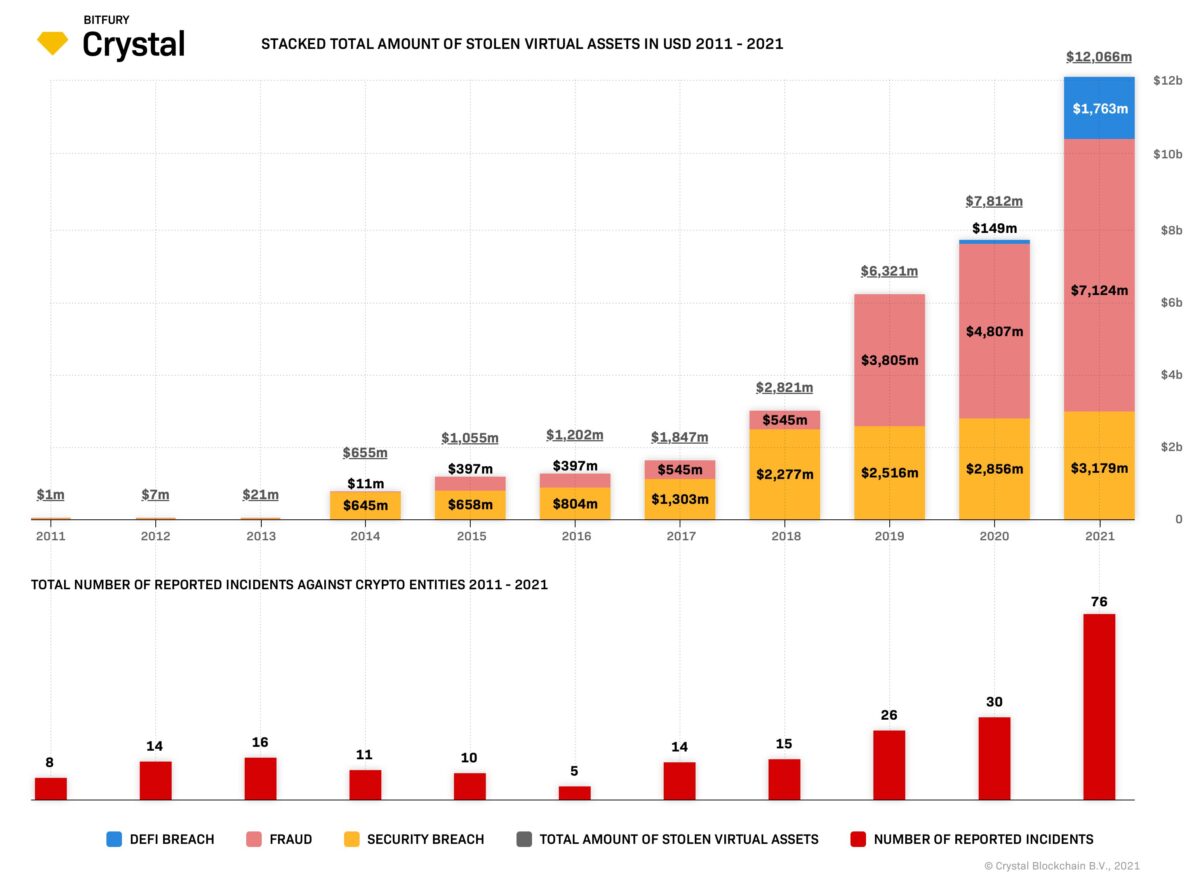Tightened regulation will reap larger capital investments and encourage more first-time buyers to enter the market; new Ziglu data shows.
The study was conducted on behalf of the UK-based money app by the independent research company Consumer Intelligence, which surveyed 1,017 adults in August of last year.
The findings of its research show that a proportion of respondents are deterred from either entering the market or buying up more crypto due to the prevalence of crypto scams and hacking incidents; whilst many see the volatility of cryptocurrency and the lack of protected value as an added obstacle to utilising the technology.
Security concerns continue to place people on the fence about entering or investing in the world of crypto. And consumers have the right to be worried. Over the last ten years, $12.1billion have been stolen in crypto assets, whilst UK consumers suffered losses of £2.5billion in 2021 alone.

Ziglu’s findings show how consumers would find the market more attractive if it were more regulated. 23 per cent of crypto investors and new entrants would either increase their holdings or put in money for the first time if regulation is tightened.
According to the data, the average amount the respondents would consider investing or increasing their holdings by is around £500, with 64 per cent stating that they would consider investing for the first time or boosting holdings.
That would represent a major shift in the market and acceptance of cryptocurrencies. Nine per cent of adults currently own digital currencies, while ten per cent say they have owned crypto in the past.
The research found that 22 per cent of crypto customers and would-be customers want companies to offer better protection against hacking, while 20 per cent want companies in the sector to provide better guides to the market.
However, the biggest barrier to investing in the crypto sector remains price volatility, with 52 per cent identifying this as a deterred to investing. Other barriers include a lack of knowledge on how the market works (46 per cent), the risk of scams (35 per cent) and the associated environmental impact (nine per cent).
Consumers hope that imposing tighter regulations will ease out these barriers, whilst making the market more sustainable. In the long term, this approach really could take the industry to the next level.

Regulated by the Financial Conduct Authority (FCA) and fully authorised as an Electronic Money Institution, Ziglu believes increased regulation is crucial to the long-term future of the market, as Mark Hipperson, the Founder and CEO of Ziglu explains: “The cryptocurrency market has attracted support from a wide range of retail investors as well as major corporates.
“There is still understandable worry about regulation of the market and that is reflected in the research and a concern we share at Ziglu. Although the FCA does not regulate crypto itself, companies providing crypto services can be regulated and authorised by the FCA. The crypto market needs to be better at protecting investors.”
Ziglu is one of the world’s first cryptocurrency platforms to comply with the Anti Money Laundering and Counter Terrorist Financing standards set by the Financial Action Task Force (FATF).



